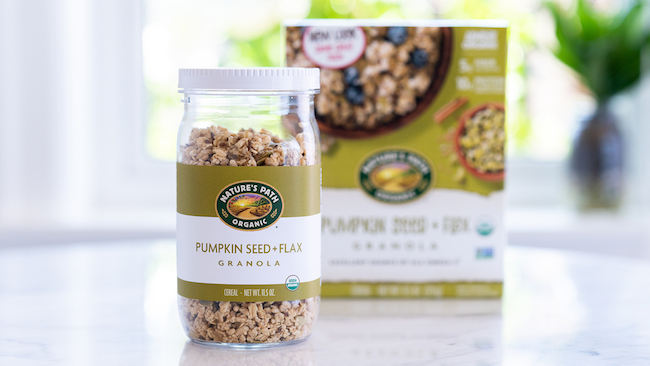
Transitioning More Farmland to Organic is Easier Said Than Done
With the U.S. organic industry having just surpassed the $50B mark for the first time ever, one aspect of this number that remains problematic is the amount of organic food that we produce on our own soil.
Less than 1% of farmland in the U.S. is organic, and with organic comprising approximately 5.5% of overall food sales in the country, we are forced to rely heavily on imports to meet our needs.
There is nothing inherently wrong with supporting organic farmers in other countries. Furthermore, given the lack of domestic production of certain products, such as bananas or coffee, purchasing organic from international markets is essential.
Yet, as we have learned over the past few years, there have been major issues with fraudulent imported organic grains, and there is no valid reason why we should not be growing more organic corn and soy here in the U.S., especially since this is in complete alignment with the current administration’s political agenda.
Wanting to gain insight from someone who works closely with farmers on a daily basis, I spoke with Dr. Kathleen Delate (below), Professor and Organic Extension Specialist at Iowa State University and one of the foremost organic agricultural experts in the country. She was the recipient of the 2017 Organic Pioneer Award from Rodale Institute and is heavily involved in the Organic Agronomy Training Series (OATS), an agricultural training program within the Organic Trade Association’s GRO Organic program.

What are the key reasons preventing more farmers from transitioning to organic?
Organic takes a commitment — in management, record keeping, and finding your own markets.
Most farmers are conditioned to their current system of producing as much grain as possible and taking the crop to the local elevator (grain processing facility), while organic farmers may be asked to grow according to certain specifications, such as protein level in soybeans. Producing an optimal organic crop requires undergoing an annual organic inspection to verify organic practices and attention to weed and nutrient management that is more knowledge-specific than conventional farming.
Many organic growers must store their grain on-farm until the organic buyer is ready to pick up, so that involves additional equipment/on-farm storage.
All of these extra steps are rewarded with premium prices and a more environmentally-sound method of farming, but many conventional farmers see these steps as a burden and are reluctant to try organic.
What is the big need of farmers?
In a survey I conducted of organic and transitioning farmers in Iowa, the majority expressed a need for more research and education in weed management, followed by developing markets for all crops in the rotation (particularly the soil-building phase of oats or other small grains).
While there is a high demand for small grains in the organic food industry, it is difficult to produce small grains with sufficient food-grade weight characteristics in our humid summers, which are conducive to disease, such as oat rust.
What is the Organic Agronomy Training Series (OATS) and what areas will it be addressing?
While we, in the organic agriculture program at Iowa State University, have been offering trainings in organic agriculture, specifically for transitioning farmers, OATS is the first combined effort between Iowa, Wisconsin and Minnesota to target educators or service providers that work with transitioning farmers.
I am currently teaching a 16-week course on Transitioning to Organic Agriculture, and the joint training will take place on August 14-15 in LaCrosse, Wisconsin, with the first day encompassing classroom workshops on organic certification, crop rotations, nutrient and pest management, and markets. The second day will include a field trip to local organic farms that will demonstrate hands-on training in basic and innovative organic practices, including organic no-till. The targeted audience will include NRCS (USDA-Natural Resources Conservation Service), Extension, private consultants, and others working with transitioning organic farmers.
—
In regards to what the organic companies and consumers can do to help, Professor Delate emphasized continuing to buy more organic food and support trainings such as OATS. Programs such as QAI’s Certified Transitional, embraced by Kashi, and initiatives to support the transition of organic farmers, such as Prairie Organic’s Spirit of Change Fund, all are important contributions.
As we lament the shortage of organic farmland in the U.S., what we cannot forget is that being a farmer is very difficult work and being an organic farmer is even more so.
With our industry in a constant race to lower prices for consumers, the financial and operational support that we provide to organic farmers must continue to strengthen and cannot be compromised.
Because without organic farmers, we have no food.
 (Professor Kathleen Delate describing best practices to produce organic corn. Photos courtesy of Iowa State University.)
(Professor Kathleen Delate describing best practices to produce organic corn. Photos courtesy of Iowa State University.)
 |
With gratitude, 
Max Goldberg, Founder |
Quick Hits
* As part of successful litigation by Center for Food Safety on behalf of beekeepers and environmentalists, the EPA has canceled a dozen pesticides that harm bees and endangered species.
* Nic’s, Chicago’s first certified organic fast-food chain, has closed all three of its locations. Founder Benjamin Brittsan said he is focusing on West Coast expansion.
* Emmanuel Faber, CEO of Danone, said that his U.S. plant-based business could become as big as its traditional yogurt business in 10 years. He also has embarked on a very smart plan to engage his company’s 100,000 global employees. What an amazing leader.
* Grace Oedel, a synagogue director, has been named Executive Director of the Northeast Organic Farmers Association of Vermont.
* There are now “Rodale Institute Approved” products.
* NYC-based Ginjan Brothers, a company that makes delicious certified organic juices from a centuries-old West African recipe and was the winner of a FedEx SME award, will soon be opening The Ginjan Café.
* In the new TV series from acclaimed chef Roy Choi, he spotlights Süprmarkt, which delivers affordable organic produce to families in South Central LA.
* The natural and organic wine movement is hitting another level.
* Apparently, the Chinese taught the USDA how to farm organically in 1909.
New Organic Products
Apple Cider Vinegar Wellness Shots by Flora
Flora’s has introduced organic apple cider vinegar wellness shots. They come in four flavors — ginger & lemon, turmeric & cinnamon, elderberry, and red beet.
Cherry-Berry Kombucha by Health-Ade
Exclusively available at Whole Foods through July, the organic Cherry-Berry kombucha by Health-Ade contains sweet cherry, elderberry and hibiscus.
Protein Stix by iWon Organics
iWon Organics recently introduced a new snack – organic Protein Stix. With 10 grams of protein, the line comes in four flavors — mesquite BBQ, spicy sweet peppers, nacho cheese, and sweet dijon.
Want your product profiled here? Learn more
Weekly News Summaries


U.S. Organic Sales Surpass $50 Billion
According to the Organic Trade Association, the U.S. organic market in 2018 broke through the $50 billion mark for the first time ever.

Instacart and Whole Foods Officially End Their Partnership
By Deirdre Bosa and Paayal Zaveri
Whole Foods, once Instacart's largest partner, now accounts for less than five percent of total Instacart revenue.

Sun Basket Closes $30M Series E
By Mary Ellen Shoup
Organic and natural meal kit service Sun Basket has raised $30M to accelerate its plan to offer AI-powered meal personalization and meal plans.

Mixed Numbers in Growth of Organic Farmland in Europe
By Rachel Graham
While the UK has seen a drop in organic farmland, Spain and other countries are moving in the opposite direction.


GMO Impossible Burger Tests Positive for Glyphosate
The Impossible Burger tested positive for glyphosate, a chemical that is known to the State of California to cause cancer. The company also said it would start using genetically-modified soy in its burgers.

KeHE Lands a B Corporation Private Equity Investor
Organic and natural distributor KeHE has announced a strategic investment from TowerBrook, the first mainstream private equity firm to earn its B Corporation certification.

"Butter" Lawsuit Against Miyoko's is Dismissed
By Elaine Watson
Miyoko's Kitchen had been facing a lawsuit for using the term "butter" on its plant-based products, but that legal challenge has now been dismissed.


Nature's Path partners with Loop in Sustainable Shopping Initiative
Nature's Path has become the first organic food brand to partner with Loop, a new global shopping platform aimed at eliminating waste by disrupting the world’s reliance on single-use packaging.

Whole Foods to Eliminate Plastic Straws from its Stores in July
By Zlati Meyer
Along with eliminating disposable plastic straws from its stores, Whole Foods said it also has reduced the size of its plastic produce bags.

In India, Nestle Announces Move into the Organic Food Market
Under its cereal brand for children, Nestle will launch three new organic products in India's organic food market.

Procter & Gamble Launches Organic Tampons
With many direct-to-consumer organic tampon brands having already launched, Procter & Gamble has introduced Tampax PURE, its new organic tampon option.
The material in this newsletter is copyrighted and may be reprinted by permission only. All requests must be in writing. Please use our contact form to request republication rights.
Newsletter Archive
Quick Hits
* As part of successful litigation by Center for Food Safety on behalf of beekeepers and environmentalists, the EPA has canceled a dozen pesticides that harm bees and endangered species.
* Nic’s, Chicago’s first certified organic fast-food chain, has closed all three of its locations. Founder Benjamin Brittsan said he is focusing on West Coast expansion.
* Emmanuel Faber, CEO of Danone, said that his U.S. plant-based business could become as big as its traditional yogurt business in 10 years. He also has embarked on a very smart plan to engage his company’s 100,000 global employees. What an amazing leader.
* Grace Oedel, a synagogue director, has been named Executive Director of the Northeast Organic Farmers Association of Vermont.
* There are now “Rodale Institute Approved” products.
* NYC-based Ginjan Brothers, a company that makes delicious certified organic juices from a centuries-old West African recipe and was the winner of a FedEx SME award, will soon be opening The Ginjan Café.
* In the new TV series from acclaimed chef Roy Choi, he spotlights Süprmarkt, which delivers affordable organic produce to families in South Central LA.
* The natural and organic wine movement is hitting another level.
* Apparently, the Chinese taught the USDA how to farm organically in 1909.



